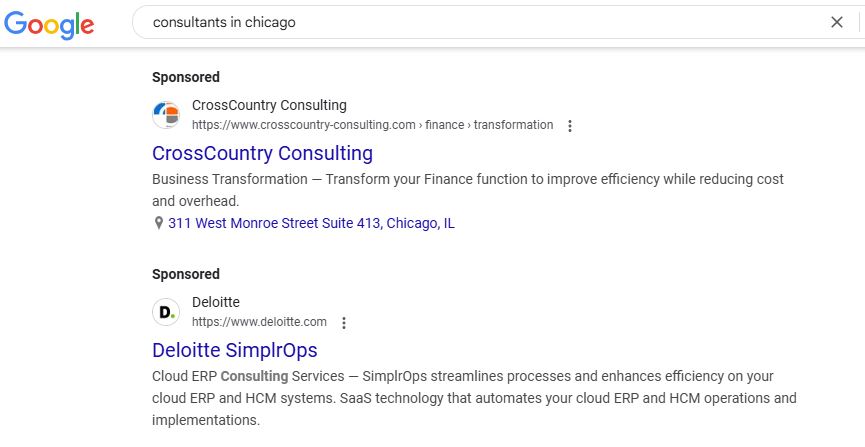Starting a consulting business is one thing – scaling and growing it is another. If you’ve been struggling to get high-quality leads and convert them into long-term clients, this practical guide is for you. In it, we’ll dive into what actually works for consultants in almost every field, whether it’s financial, health, or any other. You’ll get a roadmap for growth based on what’s already working for others. Let’s dive in.
Growing a Consulting Business: Step-by-Step
First things first. Let’s talk about what makes your business stand out from the rest.
Define your Unique Value Proposition
Your unique value proposition or unique selling proposition (USP) can be anything that makes you different or unique from other consultants in the market. This doesn’t have to be completely different. It can be as simple as a value-filled lead magnet that attracts prospects to your marketing funnel. Or, you can narrow your focus down to a niche. Niche consultants can easily stand out in that niche as compared to consultants with a broad audience. 84% of buyers say expertise is the top factor when hiring a consultant.
Understand Your Target Audience
According to a report, 42% of startups fail because of no market need. Knowing who you want to do business with is probably the first step of every marketing strategy. Understand who your audience is, where they spend their time online, and what are their top pain points and desires.
You May Also Like: Content Marketing vs. Advertising (Differences, Pros, and Cons)
Analyze Your Competitors

Your competitors are like a guiding torch for your personal brand. Find what your competitors are doing, identify what’s working for them, and focus on what could work for you. You can use a tool like Semrush to reverse-engineer your competitor’s strategies. For instance, it can tell you which keywords are they ranking for on Google.
Create a Marketing Plan
Having a clear, realistic, and measurable plan is crucial to remain consistent with your efforts and attain your objectives timely. First, you need to select your ideal revenue model. Do you want to charge per project, hourly, or offer a retainer? In addition, you need a marketing strategy with a focus on at least a couple of digital platforms, for instance, you can use SEO for organic traffic and Meta ads for paid traffic. Did you know that companies with a financial plan grow 30% faster?
Building a Strong Online Presence
Having a solid online presence is non-negotiable. Otherwise, how’d you find and connect with your clients? A professional consulting website is a must. Make it SEO-friendly so that people can find you on search engines like Google easily. In addition, pick at least two social media platforms and create optimized profiles or pages for your services. Most people are on Facebook and Instagram, so if you’re not sure where your audience hangs out, start with these two.
Related: How to Use Email Marketing the Right Way
Leverage Content Marketing

Content marketing is when you pull your target audience into your marketing funnel with the power of helpful content. Use tools like Answer The Public to find questions related to your consulting niche and answer those questions in blog posts, social media posts, or YouTube videos. Also, network in industry groups on Facebook and other niche communities to get noticed by the right people and build trust.
If you want to use blogging, use a tool like Semrush to find what people are searching for on Google and create topic clusters around your service. Cover each topic around your main service and interlink all relevant pages for better organic visibility. On social media, look at your competitors’ content and try to replicate what works for them.
Invest in Paid Advertising
Advertising is when you pay platforms like Facebook and Google to show your ads to your target audience. For instance, Google search ads allow you to pay for each click on your ad. The cost for each click depends on the competitor of the keyword you’re targeting, which is why it’s important to do keyword research and find the ones that can bring you the highest ROI.
There are two types of ads you can invest in: The first kind attracts prospects to your marketing funnel. Example: Google search ads. These show at the top of organic search results for particular keywords.

The second kind is when you put your consulting services in front of a passive audience. These are the people who aren’t actively looking for your service but are a good candidate to become your customers down the line.
Sale and Automate with Email Marketing
Organic and paid traffic are two major types of traffic, but what if you want to retain that traffic and interact with it consistently? This is where email marketing comes in; it lets you nurture and convert your traffic into long-term paying customers. Just add a signup form on your website, collect emails, and use email autoresponders to build relationships with people.
You May Also Like: The Link Between SEO and Social Media
How to Grow Your Consulting Business: FAQs
Let’s address some common questions related to growing a consulting business.
How Do I Find My First Consulting Clients?
To find consulting clients fast, leverage your current network, offer free strategy sessions, and use LinkedIn outreach.
What are the Best Pricing Models for Consultants?
You can offer three types of pricing models to your clients as a consultant:
- Hourly: Ideal for short-term tasks
- Project-based: A fixed price for specific deliverables, such as a website revamp
- Retainer: A recurring fee for ongoing support
How Do I Retain Clients as a Consultant?
The best way to retain existing clients and build long-term relationships is by offering top-notch services and customer support.
Read More: User-Generated Content vs. Influencer Marketing
Conclusion
A consulting business grows itself once you have a growth system in place. Create a growth strategy after knowing your customers and competitors. Stick to it while tracking your results. Data-driven businesses are 3x more likely to succeed, so use data to inform your growth strategies.
References
- https://www.edelman.com/trust/2022-trust-barometer
- https://www.cbinsights.com/research/startup-failure-reasons-top/
- https://craftbreweryfinance.com/research-study-companies-with-a-financial-plan-grow-30-faster/
- https://www.mckinsey.com/capabilities/mckinsey-digital/our-insights/the-data-driven-enterprise-of-2025
- https://www.forbes.com/sites/alizalicht/2020/01/01/how-to-build-a-successful-consulting-business/




